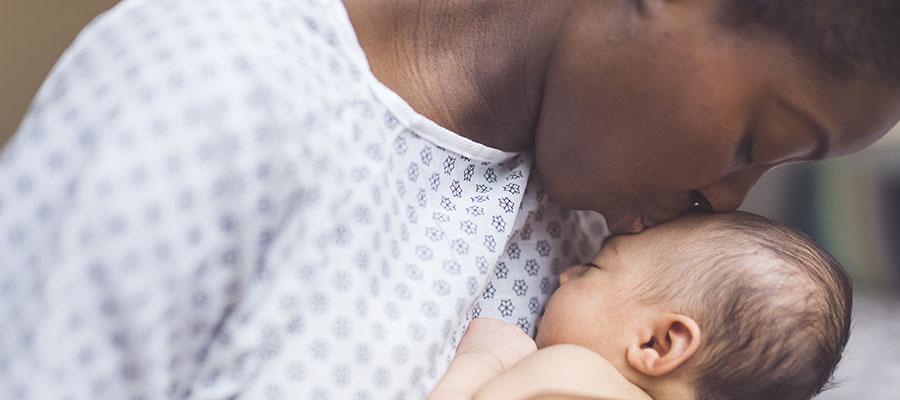Improving mental health care for pregnant and postpartum women

Women during pregnancy and in their first postpartum year are more likely to suffer from depression and anxiety disorders than at any other time in their lives. Indeed, it is the most common time for a woman to be admitted to a psychiatric inpatient facility. Up to 15% of women who give birth suffer from a diagnosable behavioral health condition, most commonly depression or anxiety.
Postpartum depression occurs in 10-15% of new moms, and a prior history of depression or anxiety increases the risk. While postpartum depression and anxiety disorders are known to adversely impact mothers, it also can alter infants’ emotional and cognitive development and interfere with maternal-infant attachment. Furthermore, maternal depression during pregnancy has been associated with negative health habits, such as poor nutrition and use of nicotine, alcohol and drugs, all of which have been linked to premature delivery and low birth weight.
The United States has historically lagged Great Britain and many other nations in the recognition and treatment of perinatal (the time before and after birth) and postpartum psychiatric disorders. These countries have applied both the concept and practice of treating mothers and babies together in specialized mother-baby psychiatric inpatient units; it is viewed as an integral component of psychiatric treatment.
The Postpartum Depression Day Hospital was opened in February 2000 to begin addressing the need for a similar treatment philosophy in America – and through the collaboration of obstetrical specialists, mental health specialists and leadership at Rhode Island’s Women & Infants Hospital. The Day Hospital, also known as a “partial hospital program,” was established. Women attend the program Monday through Friday for six hours per day. Daily programming consists of group, individual, family and mother-baby therapy, skills groups and medication management.
The WIH Day Hospital came about as the response to the growing awareness that traditional psychiatric settings may not be comfortable for, or acceptable to, pregnant and postpartum women. The Day Hospital supports many women in a safe, nurturing environment who might otherwise be treated in an inpatient setting without the availability of perinatal and postpartum mental health specialists. The inclusion of babies in the treatment avoids unnecessary maternal-infant separation, supports breastfeeding, and allows for dyadic assessment and intervention. Mothers who attend our program highlight the solidarity of being with other women struggling at a time when they are “expected to be” their most joyous. The single-most common sentiment that women express upon discharge is the benefit of “knowing I’m not alone.”
Prior to the Day Hospital’s opening, a systematic process was undertaken to document the clinical need, practical feasibility and fiscal viability of the program. Key elements included: clear description of the rationale and mission of the proposed program; needs assessments and cost-effectiveness research in geographic area of southern New England; and discussion of the proposed service with hospital representatives from obstetrical, mental health, pediatric and primary care, as well as with community based agencies and state and private insurance providers.
To date, tens of thousands of perinatal women have been served. The program model has been replicated or adapted at sites across the country. Given high demand, the Day Hospital expanded its space, added clinicians and doubled the daily census. In the words of one program graduate: “I don’t know where I’d be without all of you. I’m feeling great and enjoying every day with my family. A few months ago I thought I’d never feel myself again. …The enclosed photo is to show you who you’ve really helped — my kids now have the mother they deserve back. My family owes so much to all of you. We just wanted you all to know how important the work you do is.”
Margaret Howard, Ph.D., is division director of women's behavioral health at Women & Infants Hospital and executive director of women’s behavioral health at Care New England.; and is a professor of psychiatry and human behavior and medicine and clinician educator at Warren Alpert Medical School of Brown University.
Opinions expressed by the authors do not necessarily reflect the policy of the AHA.

